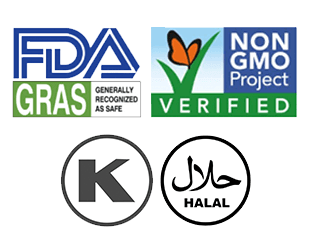What is BC30™
BC30™ (Bacillus coagulans GBI 30, 6086®) is a natural probiotic ingredient used by product manufacturers to create a wide range of probiotic fortified foods, beverages and pet food products.
Lern MoreThe Safe, Natural, and Stable Probiotic Ingredient used in Foods and Beverages

BC30™ (Bacillus coagulans GBI 30, 6086®) is a natural probiotic ingredient used by product manufacturers to create a wide range of probiotic fortified foods, beverages and pet food products.
Lern More
BC30™ is available in more than 1,000 products worldwide, in a wide variety of functional foods, beverages and pet food products.
Lern More
BC30™ (Bacillus coagulans GBI 30, 6086®) is a well studied and safe spore-forming probiotic with dozens of published, clinical, pre-clinical and biomarker research papers for digestive health, protein absorption, and immune health across ages and lifestyles.
Lern MoreBC30™ (Bacillus coagulans GBI-30, 6086®) 30, 6086) is a natural probiotic ingredient widely used by manufacturers to create functional foods and beverages. With a commitment to providing a safe and effective probiotic for all, BC30 is featured in over 1,000 leading food, beverage, and pet food products worldwide.
Supported by over 45 published research papers, BC30™ has been confirmed for its safety, stability, and demonstrating its ability to support digestive health (1B CFU/serving) and protein absorption (1B CFU/serving).
BC30™ is a spore forming probiotic that remains viable through most manufacturing processes and the low pH of the stomach, making it an ideal choice for fortifying everyday foods and beverages with probiotics.
A patented, award-winning branded probiotic, BC30™ is trusted by consumers worldwide, because it provides the safe probiotic benefits people want most.


Learn more from our research experts on the science behind BC30TM.
